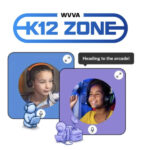
Standardized testing – Is it still relevant today?
We want our children to succeed academically and be prepared for the challenges ahead, both in school and in life. One of the most common tools used to measure students’ progress and abilities has long been standardized testing. These tests are familiar to many, from the SATs to state-required assessments, and often serve as a benchmark for determining a student’s academic performance.
But in recent years, there has been growing debate about the relevance of standardized testing in today’s educational landscape. As more students embrace online learning and as the educational system continues to evolve, many are questioning whether standardized tests truly measure a student’s abilities, and if there might be better ways to assess their progress.
Are standardized tests relevant in modern education? What are the benefits and drawbacks of these tests? And are there alternatives that may better support today’s learners?
The Purpose of Standardized Testing
To understand whether standardized testing is still relevant, it’s important to first examine its purpose. Standardized tests are designed to assess students’ knowledge in a uniform way, providing educators, parents and policymakers with an objective measure of academic achievement. The tests can help identify areas where students may need additional support and can offer data on how well a school or district is performing overall.
For decades, standardized testing has been a key component of education in the United States. Tests such as the SAT, ACT and state-level assessments have been used to measure everything from reading and math proficiency to readiness for college. However, the increasing reliance on these tests has led to questions about their effectiveness and fairness.
The Benefits of Standardized Testing
Despite the criticism, standardized tests do have some notable benefits.
Objective Measure of Performance
Standardized tests provide an objective way to assess students’ knowledge. Unlike teacher-made tests, which can be influenced by personal biases or varying levels of difficulty, standardized tests offer a level playing field where every student is assessed using the same criteria.
Accountability for Schools and Educators
Standardized testing holds schools and educators accountable for the progress of their students. By examining test results, policymakers can identify which schools or districts are struggling and which are succeeding. This data helps direct funding and resources to schools that need it most.
Preparation for College and Career
For many students, standardized tests such as the SAT or ACT are seen as crucial steps toward college acceptance. These tests give universities a consistent way to compare applicants from different high schools, ensuring that admissions decisions are based on standardized criteria.
The Drawbacks of Standardized Testing
While there are benefits, there also are several concerns and drawbacks to relying heavily on standardized tests to measure student performance.
Limited Scope
Standardized tests often fail to capture the full range of a student’s abilities. They mainly assess skills in specific subjects such as math, reading and writing, but they do not measure creativity, critical thinking, problem-solving skills or emotional intelligence—skills that are vital for success in today’s world.
Stress and Anxiety
For many students, the pressure to perform well on standardized tests can lead to significant stress and anxiety. The high stakes associated with these tests can be overwhelming, especially for students who may not perform well under pressure or for those who learn differently.
Inequity and Bias
Standardized tests have been criticized for being biased against students from different socioeconomic backgrounds. Children who attend underfunded schools may not have access to the same resources or preparation opportunities as students from wealthier schools, leading to inequitable outcomes. Moreover, students with learning disabilities or those who are non-native English speakers may struggle with these tests, even if they excel in other areas of life.
Teaching to the Test
Another concern is that standardized testing can encourage a “teach to the test” mentality. Educators may feel pressured to focus solely on the material covered in the test, neglecting broader topics or fostering a more well-rounded education that encourages deeper learning.
The Rise of Online Schooling and Assessment
As online learning continues to grow in popularity, particularly for K-12 students, the traditional methods of assessment also are evolving. Online schools often use more dynamic and flexible forms of testing and evaluation, which may offer a more accurate picture of a student’s capabilities.
Ongoing Assessment
In online schools, students often are assessed through ongoing projects, assignments and interactive activities that provide a more comprehensive understanding of their skills. This approach allows students to demonstrate their learning in a more authentic, real-world context, rather than relying on one-time standardized tests.
Personalized Learning
One of the main advantages of online education is the ability to personalize learning experiences for each student. Rather than being judged by a standardized test score, students are evaluated based on their individual progress. Online learning platforms often include tools for teachers to track students’ strengths and weaknesses, tailoring instruction to help each child succeed.
Alternative Forms of Assessment
Online schools also are exploring alternative forms of assessment such as portfolios where students can showcase their work over time. These portfolios may include a range of projects, papers, videos and presentations that better reflect a student’s abilities. This form of assessment can provide a richer and more accurate picture of a student’s academic journey.
Is It Time for a Change? Alternatives to Standardized Testing
While standardized tests continue to be a key part of many educational systems, there is growing momentum toward exploring alternatives that may better serve today’s learners. Here are some alternatives to standardized testing that schools and educators are considering.
- Project-Based Learning, students work on long-term projects that require them to apply their knowledge and skills to solve real-world problems. This approach emphasizes critical thinking, collaboration and creativity, and it allows students to demonstrate their learning in a more holistic way.
- Performance-Based Assessments require students to complete tasks that mirror real-life situations such as conducting an experiment, writing an essay or designing a solution to a problem. These assessments give students the opportunity to showcase their knowledge and skills in a more practical and engaging way.
- Formative Assessments are ongoing assessments that take place during the learning process. They include quizzes, discussions, assignments and teacher observations. This type of assessment allows for continuous feedback, helping both students and educators track progress and adjust instruction as needed.
Is Standardized Testing Still Relevant?
Standardized testing has long been a staple of education, but its relevance in today’s educational environment is being increasingly questioned. While standardized tests can offer valuable data, they have significant drawbacks, especially when it comes to their limited scope, the stress they create and their potential for inequity.
With the rise of online schooling and alternative forms of assessment, the traditional model of standardized testing may be evolving. By focusing on ongoing assessments, project-based learning and personalized education, we can create a more accurate and supportive system that values each student’s unique abilities.
As a parent, it’s important to stay informed about the changing landscape of education and how different assessment methods might benefit your child.















